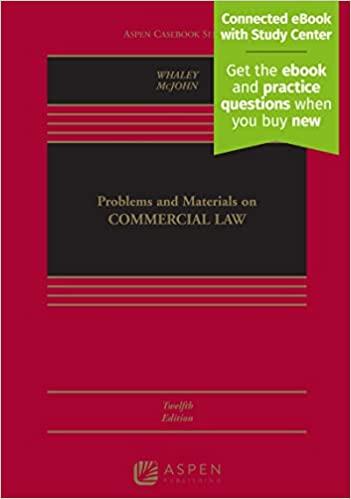Question
Peter is the director of P&L Company (the Company) and is also the sole signatory of the Company's account. The Company was negotiating a sale
Peter is the director of P&L Company (the Company) and is also the sole signatory of the Company's account. The Company was negotiating a sale of goods contract to purchase kitchen-ware from DD Company, who is requesting Peter to act as the guarantor.
In entering into the sale of goods contract, Peter agreed to act as a demand guarantor for the Company (P&L) for the purchase of 500 sets of kitchen-ware. Further, Peter, acting in the capacity as the director of the Company (P&L) signed a cross cheque payable to DD Company as down payment for the 500 sets of kitchen-ware.
To complete the sale of goods contract, DD Company negotiated the cheque of the Company (P&L) to Kitchen Ltd, who was responsible for the making of the kitchen-ware. DD Company indorsed the cheque in favour of Kitchen Ltd. When Kitchen Ltd. paid in the cheque for payment, the cheque was rejected with the reason that the account did not have enough funds (but the Company (P&L) account did have the appropriate amount of funds). As a result, DD Company is enforcing the guarantee against Peter.
Advice ALL parties as to their rights and obligations (if any)
Would your answer be different if:
- Before the enforcement of the guarantee, the amount of kitchen-ware had changed from 500 to 1000 sets.
- Kitchen Ltd did receive the cheque payment, but the money came from Peter's personal account.
- When DD Company negotiated the cheque to Kitchen Ltd. DD Company did not sign on the cheque.
Step by Step Solution
There are 3 Steps involved in it
Step: 1

Get Instant Access to Expert-Tailored Solutions
See step-by-step solutions with expert insights and AI powered tools for academic success
Step: 2

Step: 3

Ace Your Homework with AI
Get the answers you need in no time with our AI-driven, step-by-step assistance
Get Started


